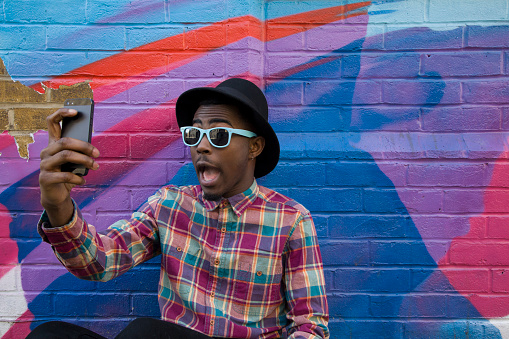Things You’re Doing That Make People Dislike You Immediately

There are plenty of ways to turn people off. In fact, most of them don’t require very much effort. All it takes is one look at your social media activity or a casual in-person introduction to make someone realize they just don’t want to spend time with you. We’ve rounded up some of the most common social turn-offs online and in person, as well as how to avoid them. Read on and see which ones you’ve been guilty of.

1. Sharing too many photos on Facebook
You might be eager to share snapshots of your honeymoon, your cousin’s graduation, and your dog dressed up in a Halloween costume, all within a 24-hour period.
But research has found that posting too many photos on Facebook can hurt your real-life relationships.
“This is because people, other than very close friends and relatives, don’t seem to relate well to those who constantly share photos of themselves .
Specifically, friends don’t like it when you’ve got too many photos of family, and relatives don’t like it when you’ve got too many photos of friends.
lBe cautious when sharing and think how it will be perceived by all the others who may see it. Although sharing is a great way to better relationships, it can also damage them.
2. Having too many or too few Facebook friends
In one study, researchers asked college students to look at fictional Facebook profiles and decide how much they liked the profiles’ owners. The study took place back in 2008, and the students had about 300 friends each.
Results showed that the “sweet spot” for likeability was about 300 friends. Likeability ratings were lowest when a profile owner had only about 100 friends, and almost as low when they had more than 300 friends.
As for why 300-plus friends could be a turn-off, the study authors write, “Individuals with too many friends may appear to be focusing too much on Facebook, friending out of desperation rather than popularity.”
On the other hand, the researchers acknowledge that if you look at a population where the most common number of Facebook friends is 1,000, the sweet spot for likeability could be 1,000. (Keep in mind, though, that one survey found the average number of Facebook friends among adult users was 338 in 2014.)
Interestingly, the study also found that participants weren’t consciously aware that they liked people less when they had too many or too few Facebook friends.
3. Disclosing something extremely personal early on in a relationship
In general, people like each other more after they’ve traded confidences. In fact, self-disclosure is one of the best ways to make friends as an adult.
But psychologists say that disclosing something too intimate say, the fact that your sister is having an extramarital affair while you’re still getting to know someone can make you seem insecure and decrease your likeability.
The key is to get personal without getting overly personal. University suggests, simply sharing details about your hobbies and your favourite childhood memories can make you seem warmer and more likable.
4. Asking someone questions without talking about yourself at all
an important caveat to the idea that self-disclosure predicts closeness: It has to be mutual. People generally like you less if you don’t reciprocate when they disclose something intimate.
In the study, unacquainted participants either engaged in back-and-forth self disclosure or took turns self-disclosing for 12 minutes each while the other listened.
Results showed that participants in the back-and-forth group liked each other significantly more.
As the authors write, ” Although shy or socially anxious people may ask questions of the other to detract attention from themselves, our research shows that this is not a good strategy for relationship initiation. Both participants in an interaction need to disclose to generate mutual closeness and liking.”
5. Posting a close-up profile photo
If your LinkedIn profile features an image of your face practically smushed up against the camera, you’d be wise to change it.
Research suggests that faces photographed from just 45 cm (about 1.5 feet) away are considered less trustworthy, attractive and competent than faces photographed from 135 centimetres (about 4.5 feet) away.




